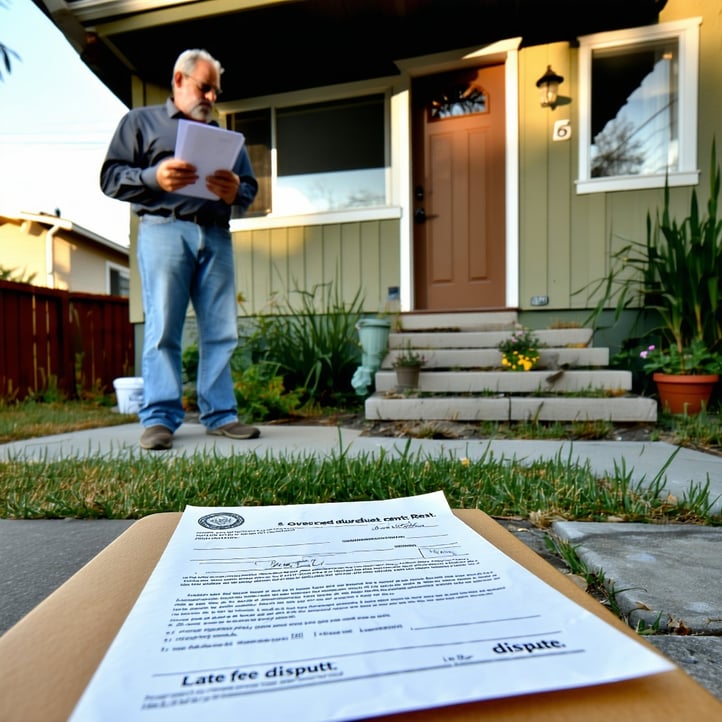If you own a rental property in Carlsbad, Oceanside, or anywhere in North County San Diego, there’s a good chance you’ll encounter tenants who serve in the military. The area is home to many active-duty servicemembers and reservists, and while that can mean stable, responsible tenants, it also means there are very specific laws and protections you need to follow as a landlord.
Unlike standard landlord-tenant relationships, renting to military personnel is governed in part by federal law under the Servicemembers Civil Relief Act (SCRA). California also has its own rules that further protect these tenants. Understanding these laws is critical if you want to stay compliant, avoid legal trouble, and maintain good tenant relations.
Lease Termination Rights for Military Tenants
One of the most important protections under the SCRA is the right for military tenants to legally terminate their lease early. This can happen if a tenant receives:
- Orders to report for active duty
- Deployment orders for a period of more than 90 days
- Permanent change of station (PCS) orders
To exercise this right, the tenant must provide you with written notice and include a copy of their military orders. The lease officially terminates 30 days after the next rent due date following the notice.
As a landlord, you cannot:
- Charge an early termination fee
- Collect rent beyond the termination date
- Withhold the security deposit to cover lost rent after the lease ends
Violating these rules can result in legal consequences, including potential penalties and the loss of your ability to enforce the lease terms in court.
You Cannot Ask About Military Status When Screening
Landlords are not allowed to ask whether an applicant is in the military during the screening process. This is to prevent housing discrimination and protect the privacy of servicemembers. However, if the applicant voluntarily shares that they are serving or you become aware after the lease is signed, you must apply all applicable military tenant laws from that point forward. It’s a good practice to familiarize yourself with these rules in advance. Waiting until you learn a tenant is in the military can put you in a difficult position if you’re not already set up to comply.
Security Deposit Restrictions for Military Tenants
This is a big one, especially with recent changes to California law. As of July 1, 2024, landlords in California are limited to charging a security deposit of no more than one month’s rent for most residential leases. There are limited exceptions to this rule, but military tenants are not one of them. That means even if the tenant has poor credit or no rental history, you still cannot charge more than one month’s rent as a deposit. This rule is not optional, and it applies whether the lease is month-to-month or fixed term. And beginning April 1, 2025, California will also require landlords to provide a written explanation if a tenant is charged more than the minimum deposit based on screening criteria. If the tenant pays their rent on time for the first six months, you’ll have to return the excess portion of the deposit. While this requirement is broader than just military tenants, it is especially important to understand how it interacts with the existing protections under the SCRA.
Eviction Protections for Active-Duty Tenants
Military tenants facing financial hardship due to active service are entitled to additional protections when it comes to eviction. Under the SCRA, a court may delay an eviction for up to 90 days if the tenant can demonstrate that their ability to pay rent has been materially affected by their service. This delay is not automatic, but if requested and approved, you’ll be prohibited from proceeding with the eviction for the length of the stay. Even though this might sound frustrating as a landlord, it is a critical protection for servicemembers who are actively supporting the country. Being aware of this rule ahead of time can help you plan and adjust your cash flow expectations appropriately.
Handling the Security Deposit Refund
Just like with any other tenant, you’re required to return the security deposit within 21 calendar days after the tenant vacates the property. However, with military tenants, there are additional details to keep in mind.
You cannot:
- Deduct for rent owed beyond the legal lease termination date
- Penalize the tenant for exercising their right to terminate early under the SCRA
The Risks of Non-Compliance
Failing to comply with either federal or state laws related to military tenants can expose you to legal penalties. This includes fines, court costs, and the possibility of having your eviction denied. Worse, it can harm your reputation and result in public complaints. Many landlords unintentionally violate these rules simply because they didn’t know they existed. That’s why it’s critical to stay updated on changes to California law, federal military protections, and your responsibilities as a property owner.
A Better Way to Stay Compliant
At Raintree Property Management, we help landlords across North County San Diego including Carlsbad, Oceanside, Encinitas, and Vista navigate the complexities of California rental law. That includes ensuring full compliance with the Servicemembers Civil Relief Act and the state’s new security deposit regulations.
We handle:
- Lease compliance
- Legal notices
- Deposit calculations and refunds
- Documentation and recordkeeping
When you work with us, you get peace of mind knowing that your property is being managed in full legal compliance, especially in situations involving military tenants.
Final Thoughts
Renting to military tenants can be a positive experience for landlords. These tenants are often highly responsible, stable, and respectful of your property. But to serve them well—and protect yourself legally you need to be aware of the special rules that apply.
If you’re unsure how to handle a lease termination, security deposit, or eviction involving a military tenant, don’t take chances. Click the link below to request a free rental analysis, and let us help you stay compliant, protect your investment, and avoid costly mistakes.




